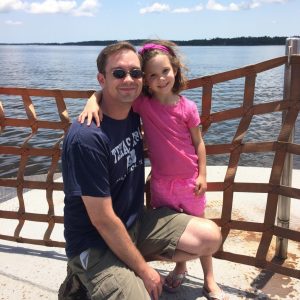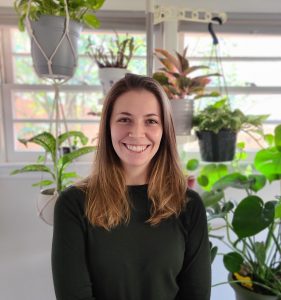Assistant Professor
Scott Parnell is an Associate Professor in the Department of Cell Biology and Physiology and a member of the Bowles Center for Alcohol Studies and the Carolina Institute for Developmental Disabilities. He earned his BA in Biology from Texas A&M University and stayed at Texas A&M for his Ph.D. in developmental neurobiology studying mechanisms of Fetal alcohol spectrum disorders (FASD) under the guidance of Dr. James West. After grad school, he then moved to UNC for his postdoctoral training in embryology in the laboratory of Dr. Kathy Sulik where he started examining the stage-dependent effects of early gestational alcohol exposure. In the latter stages of his postdoctoral work, he began studying the mechanisms of how alcohol disrupts early developmental processes. The Parnell lab continues this developmental mechanistic research by studying how alcohol and other drugs affect key cellular events during early embryogenesis. Scott teaches Anatomy to the medical students and teaches graduate students in the Cell Biology & Physiology curriculum. He also provides lectures on normal and abnormal embryogenesis in many different courses throughout UNC to public health students, nursing students, and dental residents. In his spare time, he enjoys the outdoors, cooking, sports, working on cars, and spending time on the water with his family. Email: sparnell@med.unc.edu
Research Associate
Eric Fish earned his PhD from Tufts University under the co-mentorship of Drs. Klaus A. Miczek and Joe F. DeBold. A behavioral neuroscientist at heart, Eric joined the Parnell laboratory and was immediately inspired by the elegance of morphological phenotyping. The combined powers of behavioral and morphological phenotyping allow Eric to investigate the consequences of prenatal drug exposures across the entire lifespan, and how specific gene manipulations confer sensitivity or resistance to specific prenatal alcohol effects. His research interests have recently expanded to how cannabinoids can modulate the sensitivity to prenatal alcohol exposure by acting on a similar pathogenic mechanism. In his free time, Eric enjoys being outdoors and cheering for the Tar Heels with his family.
Postdoctoral Research Associate
Karen is interested in the molecular mechanisms of prenatal alcohol exposure, as well as genetic and environmental factors that contribute to increased risk of alcohol-related birth defects. Her work in the Parnell lab has focused on 1) prenatal alcohol’s effects on primary cilia and the Shh pathway and 2) genetic regulation of prenatal alcohol sensitivity using whole transcriptome sequencing of closely related mouse strains. Prior to her work in the Parnell lab, Karen received training in the field of neuroscience in the lab of Dr. Anna Klintsova at the University of Delaware. She obtained her PhD in 2016 based on her work investigating neuroimmune activation and neurotrophin expression in the brain using a rodent model of FASD. When not in lab, Karen enjoys spending time with her spouse and pets, cooking, and sci-fi.
Lab Manager
Connie obtained her Bachelor’s in Animal Science at University of Maryland in 2014, and her Master’s in Animal and Veterinary Science from Clemson University in 2019. Her previous research work has involved examining morphological markers of lower spinal disease in military working dogs using computed tomography. She joined the Parnell lab in May 2020. Her primary roles in the lab include genotyping, colony maintenance, ordering and supply management, and dissections. When not in the lab she enjoys trying new foods, reading, baking, and spending time with her husband, 2 dogs, 2 cats, and plethora of houseplants.
Research Technician
Melina graduated from UNC-Wilmington with a Bachelor’s in Biology. Joining the lab in Fall of 2020, her work has primarily focused on investigating the role of the Huntingtin gene in birth defects associated with early gestational alcohol exposure. Before working in the Parnell lab, she worked as a sea turtle monitor at the NC Coastal Reserve, a medical intern at the Carolina Raptor Center, a DNA sequencing support specialist at Eton Bioscience, and a laboratory technician at Lindy Biosciences, Inc. Outside of the lab, Melina enjoys being outdoors, spending time with friends and family, and supporting the Philadelphia Eagles! FLY EAGLES FLY!
Research Technician
Michael graduated from UNC-CH with a B.S. in Environmental Sciences and a minor in Chemistry in May 2019. After graduating, he worked at the U.S. Environmental Protection Agency to study contemporary RNA-Seq techniques. Then he joined Parnell Lab where his main responsibilities include dissections, data entry, and mice colony management. He is mainly interested in drug toxicology, and is currently researching genetic susceptibility to drug induced malformations in prenatal development. In his spare time, Michael enjoys running, biking, gaming, cooking, writing science fiction novels, and reading nonfiction.






